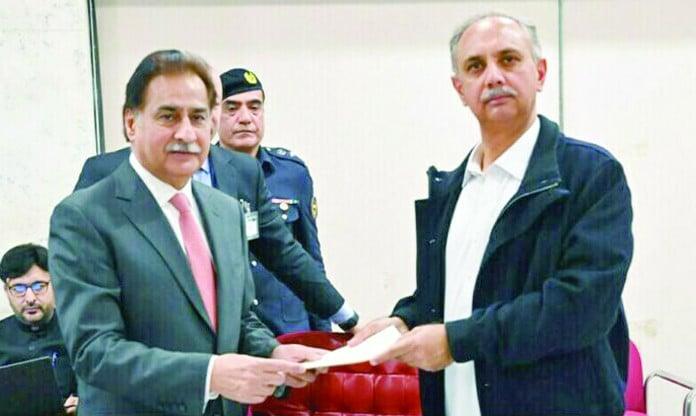The Pakistani government has officially completed its negotiation process with the Pakistan Tehreek-E-Insaf (PTI) party after PTI withdrew from the conversations and rejected a renewed offer from Prime Minister Shehbaz Sharif, said Express News.
Senator Irfan Siddiqui, spokesman for the Government’s negotiation committee and leader of the Pakistan Muslim League (Nawaz), confirmed the development in an exclusive interview with the Arabian newspaper Saudi, URDU News.
He affirmed that the negotiation process with PTI has come to an end, stating that PTI had initially approached the conversations with great urgency, but quickly retired. He pointed out that PTI’s only demand was the immediate release of party leaders, including Imran Khan, and that the only way to follow was that PTI asked the prime minister to ask the president to forgive his sentences.
Siddiqui clarified that negotiations had not stagnated or broken down, but simply concluded. He stressed that, despite the offer of the prime minister, PTI’s responses had made it clear that the conversations had reached a dead point. He pointed out that PTI’s deadline had passed and that they had dissolved their committee, marking the end of the process.
In addition, he pointed out that, although PTI had outlined several demands that could have created confidence, including the formation of a judicial commission, the government had been open to address many of these problems.
However, legal advice had indicated that a judicial commission could not be formed while the matter was still in court. Despite this, the government had been willing to consider a commitment.
On the issue of trusted construction measures, Siddiqui declared that the Government had prepared work documents in various proposals, which had not been completed but could have included many points of agreement. He stressed that if PTI had remained committed to negotiations, these proposals would have brought to the table.
He criticized the PTI approach, saying that the DNA and the central principles of the party were not aligned with constructive negotiations, but with violent street protests and tactics. He commented that PTI’s actions reflected a story of moving away from the conversations, as seen in their steep exit from the negotiations a few days before the deadline.
The senator also revealed that PTI had specifically demanded the release of several of its leaders, including Imran Khan, Shah Mehmood Qureshi and others, and had urged the Government to facilitate its liberation.
However, these demands were not formally written, but were transmitted verbally, and PTI also requested the release of other prisoners. According to Siddiqui, these demands were the main approach, while other issues, such as the formation of a judicial commission, were secondary.
Regarding the amendments of the Pakistan Electronic Crimes Law, Siddiqui expressed his personal belief that broader consultations were necessary. He acknowledged that the law should differentiate between legitimate journalism and the dissemination of false news.
He said that journalists who adhered to professional standards would not be affected by law, but those who dedicate themselves to disseminate harmful content would be.
The senator concluded by saying that he had advised the prime minister to listen to journalists’ concerns and work to amend the law to address his complaints. He expressed his commitment to work on this issue beyond his official duties.




